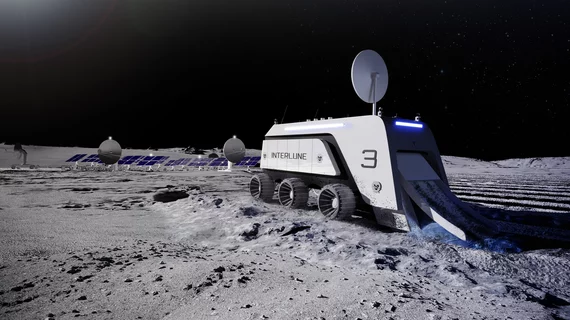Space company to extract medical imaging isotopes from the moon
Interlune, a natural resource extraction company, has unveiled plans to extract Helium-3 and other resources from the moon. Helium-3 isotopes are scarce on Earth and there is high demand for a scalable supply, as it’s vital for medical imaging, quantum computing and fusion energy.
Luckily, it is abundant on the lunar surface. As a next step, Interlune plans to finalize the design of its first robotic lunar lander mission, which will validate resource concentrations at a chosen site.
The announcement of the plan to conduct harvesting operations on the moon comes alongside the successful securing of $15 million in funding for the mission. The investment round was led by Alexis Ohanian's venture firm Seven Seven Six, in addition to the Aurelia Foundry Fund, Gaingels, Liquid 2 Ventures, Shasta Ventures and a group of University of Michigan alumni.
With the new financial backing, Interlune intends to expand its operations beyond Helium-3 extraction, targeting other valuable resources such as industrial metals and rare Earth elements, along with the necessary water to establish a sustainable presence on the moon.
In October 2023, Interlune received a National Science Foundation (NSF) Small Business Innovation Research (SBIR) award to develop technology to size and sort lunar regolith. The award will fund simulation testing for the lunar mission.
Interlude was founded by former Blue Origin executives Rob Meyerson and Gary Lai, alongside Apollo 17 astronaut Harrison Schmitt.

